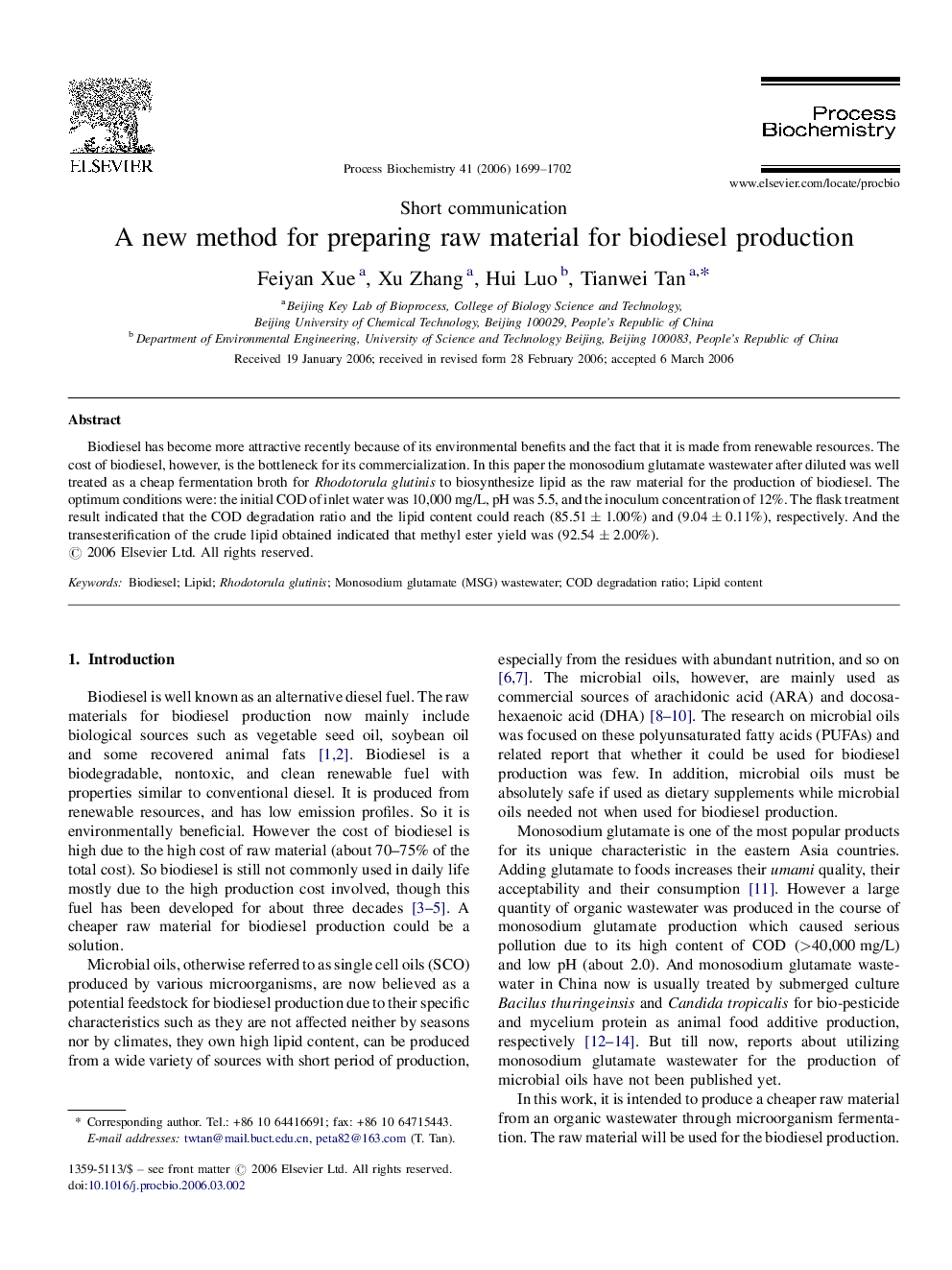| Article ID | Journal | Published Year | Pages | File Type |
|---|---|---|---|---|
| 36438 | Process Biochemistry | 2006 | 4 Pages |
Biodiesel has become more attractive recently because of its environmental benefits and the fact that it is made from renewable resources. The cost of biodiesel, however, is the bottleneck for its commercialization. In this paper the monosodium glutamate wastewater after diluted was well treated as a cheap fermentation broth for Rhodotorula glutinis to biosynthesize lipid as the raw material for the production of biodiesel. The optimum conditions were: the initial COD of inlet water was 10,000 mg/L, pH was 5.5, and the inoculum concentration of 12%. The flask treatment result indicated that the COD degradation ratio and the lipid content could reach (85.51 ± 1.00%) and (9.04 ± 0.11%), respectively. And the transesterification of the crude lipid obtained indicated that methyl ester yield was (92.54 ± 2.00%).
